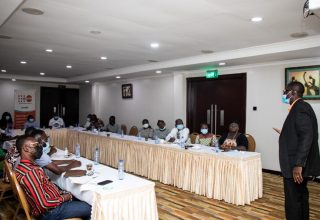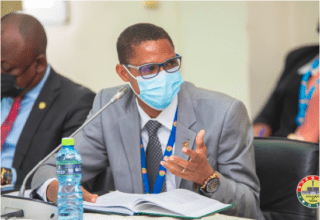
Current WHO guidelines to contain the spread of Covid-19 focuses on handwashing with soap under running water, social distancing, staying at home, use of hand sanitizers etc. About a week ago, the Government of Ghana, announced a partial lockdown of Greater Accra and Greater Kumasi with some exemptions based on our local context. In going forward, I want to ask how we can continue to implement these laudable measures within our socio-cultural and economic contexts which are very different from the developed countries? As an M&E person I have been wondering how we can strengthen our policies with more data driven/evidence-based information taking into consideration realities within our different contexts without compromising on achieving the objectives of these measures?
For example, what is the existing data in Ghana about:
- washing hands with soap and water including attitudes. For instance, some people wash their hands with water only before eating, and soap and water after eating
- size of households and sleeping arrangements
- saving habits among households and persons who earn income on daily basis
- access to media – getting information to people in a timely manner
- identification of the vulnerable (e.g. kayayee, beggars, children in the worst forms of child labour, persons with disabilities, refugees) for socio-economic support
- shelter and storage facilities for households in terms of basic necessities like accommodation, food and water
- water and sanitation – access, usage and its disposal among households
- level and attitudes towards spousal abuse within households and communities
- low Internet access/reliability and working from home/virtual meetings
- Sexual and Reproductive Health facilities and services (e.g. menstrual hygiene, family planning, antenatal and delivery services) – access and utilization
I believe that addressing the above concerns with the appropriate disaggregated data will enable us
- Package our messaging about social distancing/staying at home/reducing contact with people especially in our markets, compound houses, and slums areas. And to also better advice on the necessary precautionary and practical measures that can be taken in crowded households to self-quarantine/distance themselves (compare the mean number of household members and mean household per sleeping/size of room) from sick and vulnerable members
- Minimize the risk of transmission to the elderly in multi-generational families.
- Put in place measures to ensure that households with limited storage facilities for basic necessities like water and food stay alive
- Design socio-economic support to assist households without savings and those whose households cannot eat if they don’t work daily
- Assist families cope with stress of the pandemic and inter personal conflicts exacerbated by the quarantine/lockdown settings.
- Ensure that women and children continue to get general health services e.g. vaccinations, antenatal and delivery care, family planning (specially to reduce unmet need) in periods of lockdowns.
- Strengthen marital harmony, enhance the reporting and resolution of physical, sexual and emotional violence committed by partners – partners are being forced to spend more time with their abusers than usual and their access to help may further be limited by the pandemic.
- Minimize the impact of the pandemic in relation with challenges posed by urbanization (eg. transportation, accommodation, overcrowding, sanitation, crime etc), especially in slum communities which are breeding grounds of contagion.
Eric Appiah Okrah
An M&E Specialist
ericokrah@hotmail.com


















